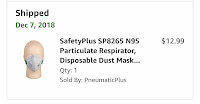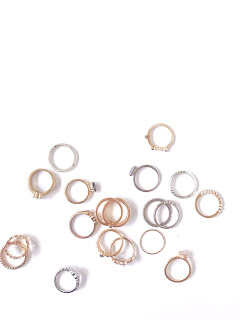I Bought N-95s Masks in 2018, A Whole Year Before Covid-19 Hit, Because I Read Newspapers
 |
| Shown is a screenshot of my 2018 order. |
“I know this is kind of silly,” I remember saying, feeling like a crazy doomsday prepper. “But, you know, if the worst happens, we’ll be glad to have these.” If the Steven King novel of my imagination, or rather King’s imagination, ever came to be, I reasoned, the last place I’d want to be was inside a drugstore full of panicked, contagious people fighting to get their hands on masks.
Then I put the masks in the back of my pantry, near the black beans and rice and canned tomatoes, and more or less forgot about them.
In early February, after stocking up a bit more than usual on things like beans, rice, flour and toilet paper, I fished the box of masks out of storage. I had read the news reports out of China, and was surprised that nobody else seemed to be concerned. I remember looking around the grocery store, where everything was business as usual, and wondering if nobody else was reading the actual news.
I credit my habit of reading solid news for my understanding of the world and thus my ability to prepare as much as possible.
I was the editor of a small daily paper until five years ago this week, and I believe in newspapers. I get the print edition of the New York Times on the weekends and read the digital version the rest of the week. I trust sources like the Washington Post, the Associated Press, Reuters — legacy news sources with reputations honed over many generations of ink-stained wretches. These are the staples of my media diet, but I spice it up with a lot of other things, too.
I want to read things that weren’t written in order to sell me a product, service or point of view. (For a while, I had a job writing information designed not to inform the public, but to capture customers. I know the difference. I’m afraid many of you do not.)
Amidst the lack of control we all have, we can still be the master of our own minds, if we so choose.
I refuse to entrust my news diet to algorithms, and that means reading newspapers. Print news is the only place where everybody gets the same news, presented in the same way to everyone. Facebook presents news it knows damned well I love to read, tailored to my specific biases. Thousands of news websites have sprung up to feed specific subgroups the soothing bullshit they crave.
But the same log of rolled-up newsprint lands on every subscriber’s doorstep every Sunday morning, not counting small differences in the makeup of regional editions of the larger papers. It does not matter whether I am liberal or conservative, religious or not, rich or poor or black or white or male or female. We all get the same news, presented the same way, as decided by a group of imperfect but well-meaning human beings who have chosen to dedicate their careers to doing this.
And that means reading stories you’d never read otherwise, being exposed to ideas you would not have sought out and learning things you didn’t know you didn’t know. It means seeing worldwide trends as they unfold. It meant I knew early on about a new virus in China that was spreading out of control. The story wasn’t on the front page, and it didn’t show up (at that point) in my social media.
No matter how intelligent you are, you cannot make smart decisions without facts and context.
Years ago, it became obvious to me that our supply chains were vulnerable to disruption. You need only walk into a Midwestern grocery store right before a blizzard and see the bare dairy and bread sections to understand how little stock stores actually keep on hand. I assumed an interruption in our oil supply was the most likely cause of a broken supply chain, but I reasoned that there was no downside to having a month’s supply of shelf-stable foods on hand, as long as we rotated stock and did not waste anything.
I’ve never hoarded food, but for several years I’ve begun keeping more staples on hand, and rotating them. We eat a lot of beans and rice anyway — my husband is a vegetarian — so why not? It’s allowed me to skip going to the store on weeks when I was especially busy or unwell.
I’ve kept the same policy for cleaning supplies and toiletries. What’s the downside of having an extra bottle of shampoo or laundry detergent? You are going to use the same amount regardless; the only difference is whether your next bottle is stored in a warehouse or on your shelf. Quite aside from disasters, a policy of keeping a month’s worth of stuff on hand really limits emergency visits to the store at inconvenient times.
And when everyone else was out foraging for toilet paper, I was safe at home with the same decent-sized supply I always have.
Most of us have little control over what will happen to us; sorry not sorry if you still believe you do. Most of us do not have rural estates with a well, a giant garden, a milk cow and a root cellar. Most of us don’t have enough wealth to order our days as we please. We can only do what we can do.
Maybe it’s buying a box of N-95s a year before a pandemic, or maybe it’s just being a generally informed person who is less vulnerable to propaganda. Be the master of your own mind and stop letting oligarchs decide what information you’ll read.

Really I enjoy your site with effective and useful information. It is included very nice post with a lot of our resources.thanks for share. i enjoy this post. masks n95 for sale
ReplyDelete